How to Read Your Glasses Prescription
How to Read Your Glasses Prescription?
Have you ever felt like you were trying to decipher a code while reading your eyeglass prescription? The truth is that many people are overwhelmed by the seemingly confusing array of medical abbreviations and numbers on the page. Being able to read your prescription is really helpful for finding glasses that fit your vision needs.
Abbreviations Explained in Prescription
The abbreviations and numbers on your prescription might seem confusing, To understand the abbreviations that are common on your prescription will make you better at reading as well as filling your prescription.
- OD (Oculus Dexter): Latin for right eye.
- OS (Oculus Sinister): Latin for left eye.
- SPH (Sphere): Indicates lens power needed for focus, ranging from -10 to +10, with positive (+) or negative (-) values.
- CYL (Cylinder): Corrects astigmatism, with values from -6 to +6. May not be present on all prescriptions.
- AXIS: Degree and direction of astigmatism, ranging from 0 to 180.
- ADD: Extra lens power for reading, from +0.50 to +3.50, used in bifocals/progressives.
- Prism: Corrects vision displacement, measured in prism diopters (Δ), with directions (IN, OUT, UP, DOWN).
- PD (Pupillary Distance): Millimeters between pupils, crucial for lens fitting. Can be measured at home.
- Binocular: Refers to both eyes. Pupillary Distance may be listed as binocular (one number) or monocular (separate for each eye).
Nearsighted Prescription
In nearsighted (myopia) prescriptions, a minus sign (-) is placed in front of the SPH (sphere). The value after the minus sign represents the strength of the lens prescription needed to improve distance vision. The PD in this prescription indicates Binocular, If your prescription has two PD values, please fill them out separately.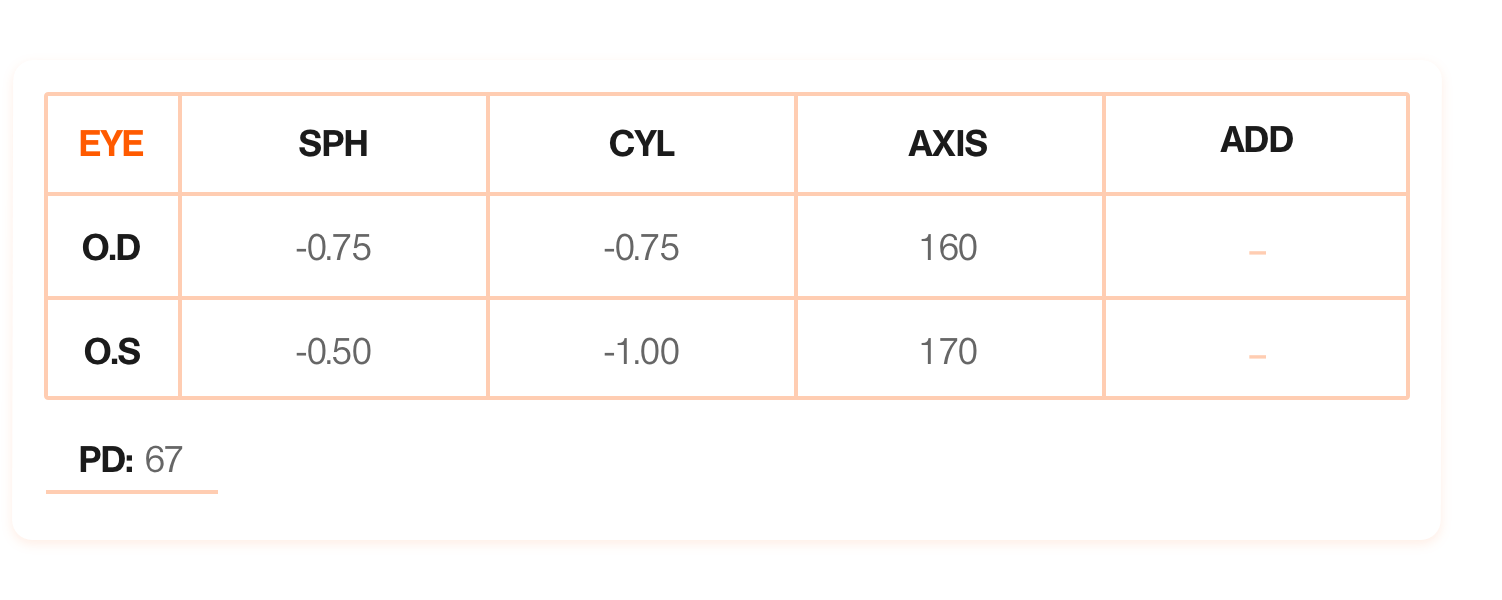
Farsighted Prescription
In farsighted (myopia) prescriptions, a plus sign (+) is placed in front of the SPH (sphere). The value after the plus sign represents the strength of the lens prescription needed to improve near distance vision.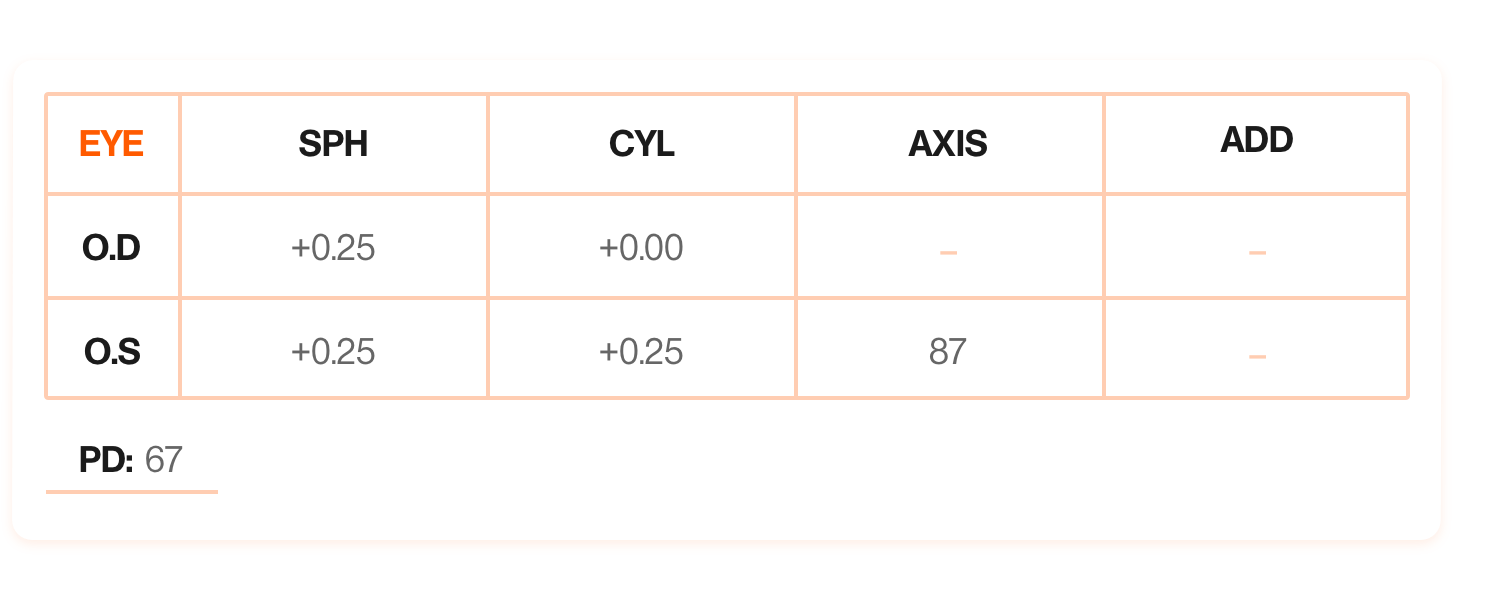
Progressive & Bifocal Prescription
A progressive prescription or bifocal prescription will include an ADD value, sometimes marked as NV. This indicates the required strength for the near prescription in your lens.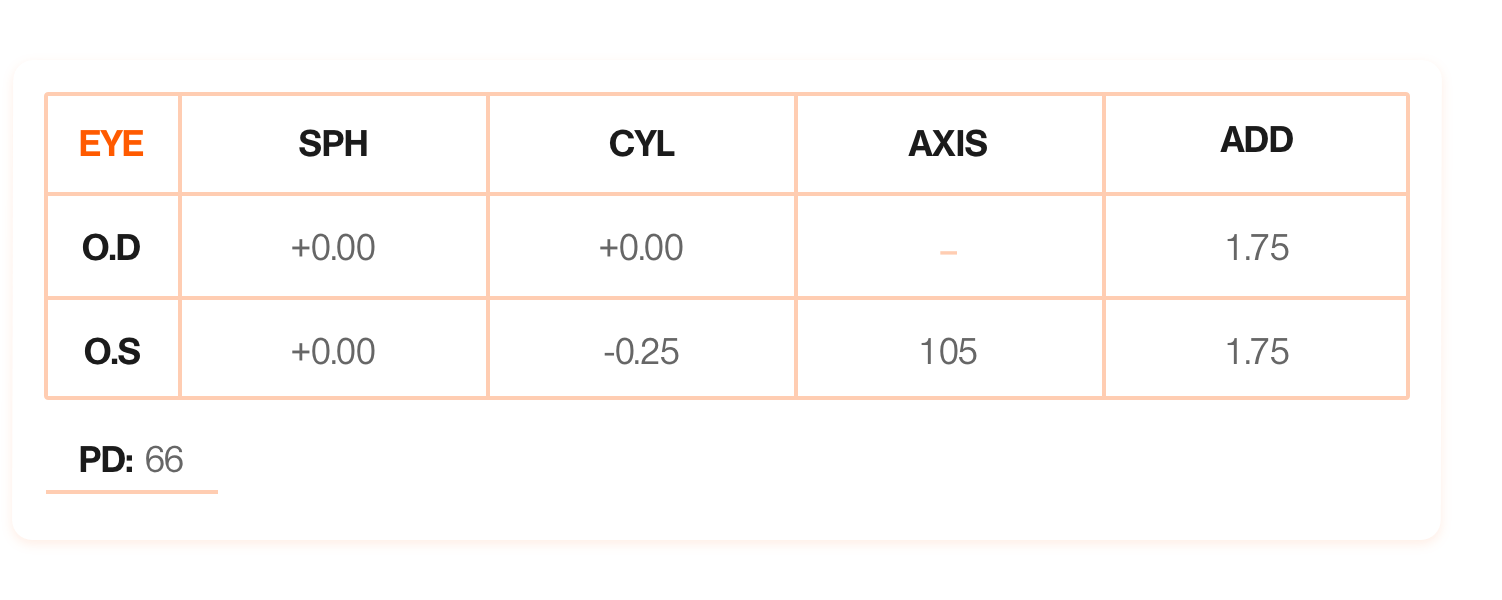
Astigmatism Prescription
If you have astigmatism, your prescription will include a number in the cylinder (CYL) column, indicating the lens power needed for correction. Additionally, the AXIS column will show a number that helps align the correction for astigmatism. The left eye (OS) has a value of -0.25, indicating a slight degree of astigmatism that requires correction.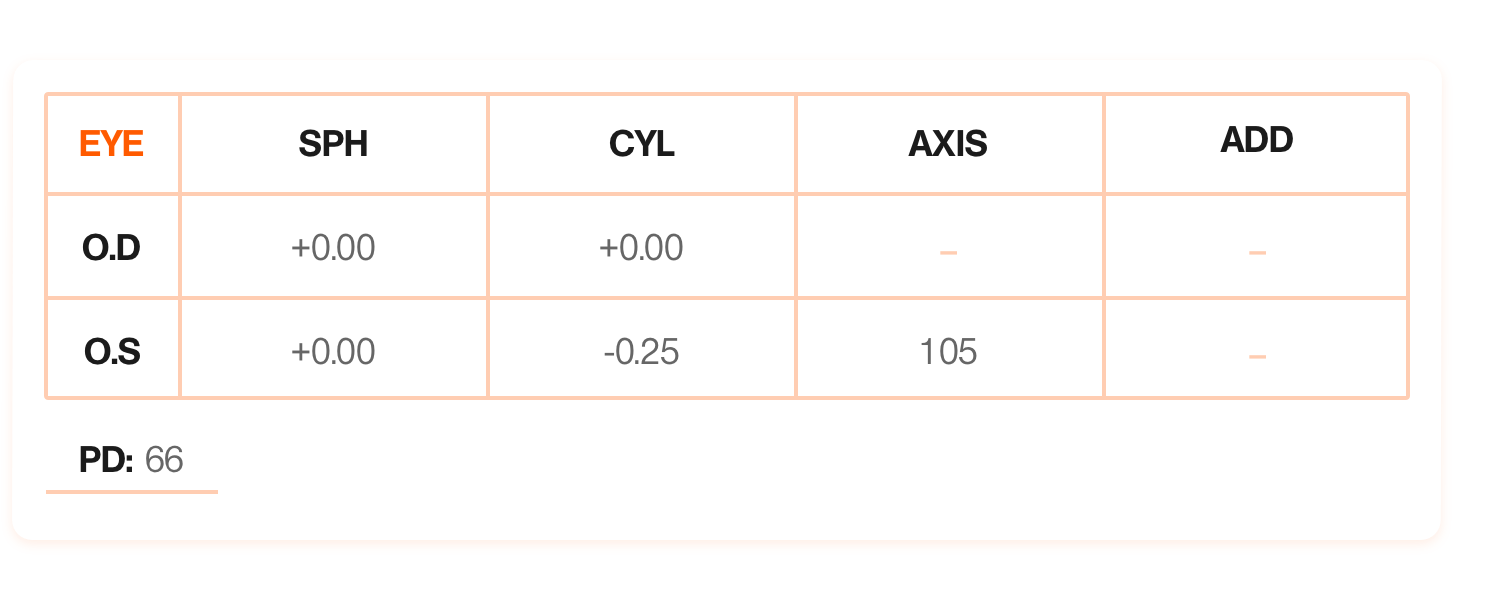
Prescriptions With Prism Correction
A prescription for correcting eye alignment issues will include a PRISM and BASE value. These values indicate how to shape the lens for proper alignment of the wearer’s eyesight. The base value specifies the direction of the prism, which can be labeled as 'in' or 'out,' or 'up' or 'down.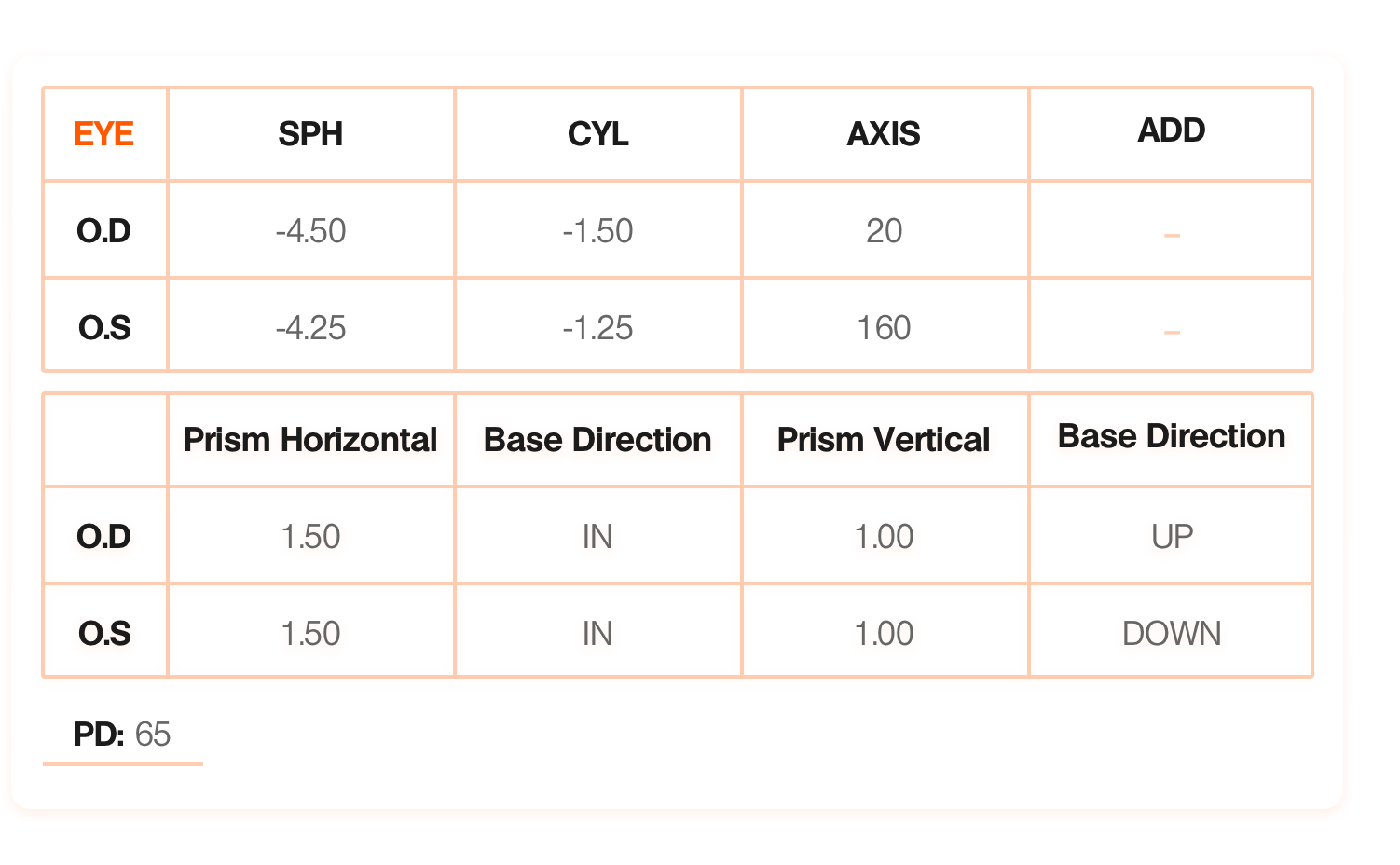
Whether you're ordering new glasses, curious about what all those numbers on your prescription mean, or just want to feel more informed about abbreviations in prescription form, the guide has got you covered! Ready to see more clearly, in style?



















